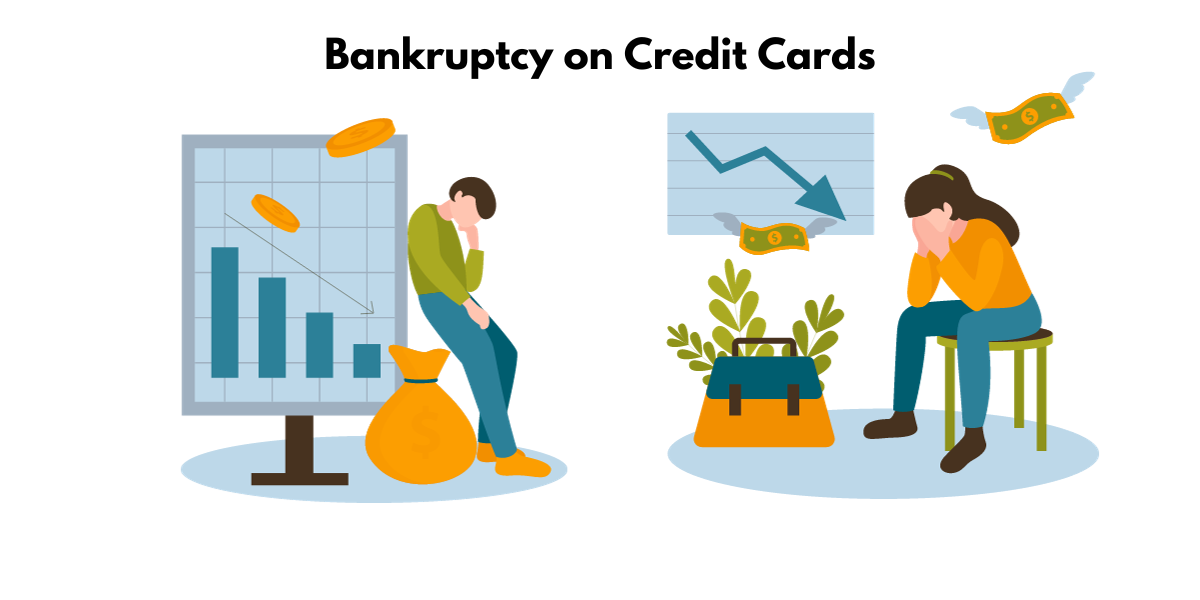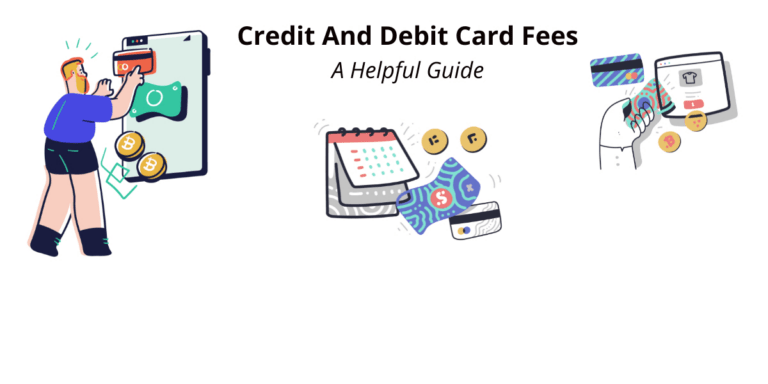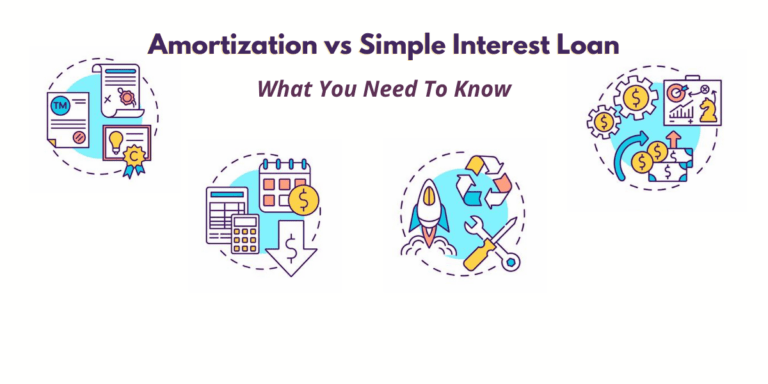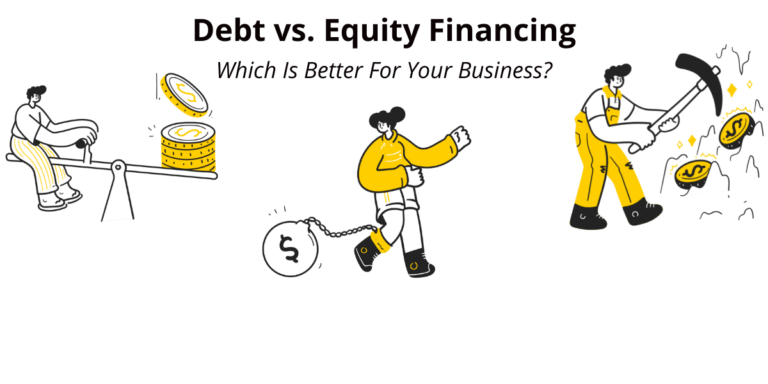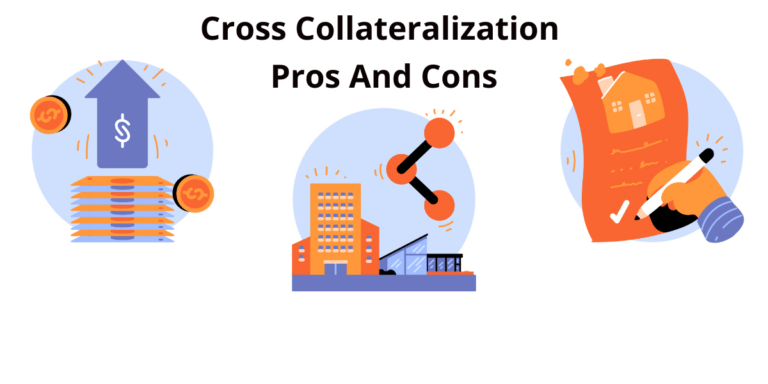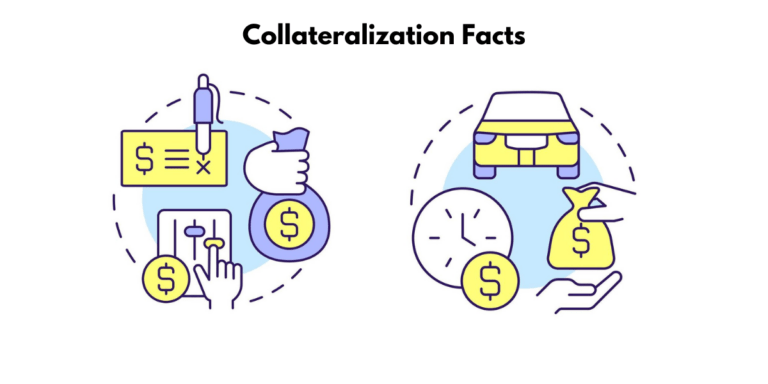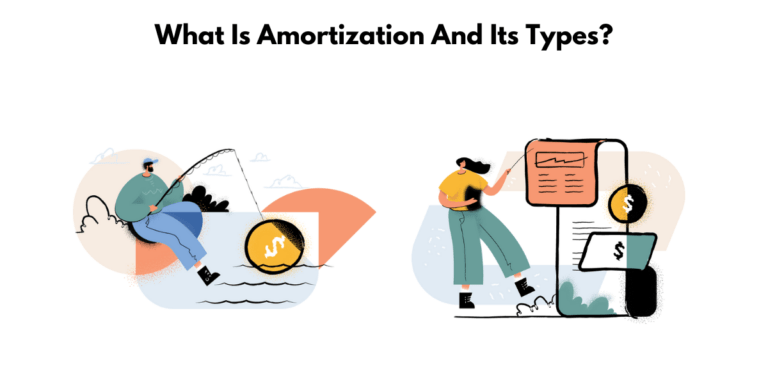How to File for Bankruptcy on Credit Cards: The Complete Guide to Bankruptcy and Credit Card Debt
The Basics of Credit Card Debt and Bankruptcy
Defining Credit Card Debt
Accumulating debt on your credit card is akin to taking a loan from your card’s issuer which is instantly used to make purchases. This type of debt falls under the umbrella of unsecured debt, signifying that there is no collateral to secure the loan. Nevertheless, you are obliged to repay the debt. Failing to do so might allow the credit card company to take legal action against you, which can have an impact on your income or property.
Overview of Bankruptcy
Bankruptcy is a legal procedure that helps individuals or businesses eliminate part or all of their debt or aids them in repaying a certain portion of their financial liabilities. In the United States, all bankruptcy proceedings are carried out under the jurisdiction of the federal court. When you file for bankruptcy, the court puts an instant “automatic stay” on your debts. This prevents creditors from collecting payments, garnishing your wages, or going forward with lawsuits.
According to United States Courts’ data, bankruptcy mainly comes in two categories for consumers — Chapter 7 and Chapter 13. While both types are designed to relieve a debtor from insurmountable financial pressure, they function in different ways and carry different outcomes.

Chapter 7 Vs Chapter 13 Bankruptcy for Credit Card Debt
Advantages and Disadvantages of Filing a Chapter 7 Bankruptcy
Filing for a Chapter 7 bankruptcy can potentially eliminate most of your unsecured debts, including credit card debts, medical bills, overdue utility bills, and personal loans. A Chapter 7 bankruptcy can also prevent repossessions, foreclosures, and evictions, providing much-needed relief to those in financial distress.
However, despite its apparent benefits, Chapter 7 bankruptcy comes with its share of downsides. It’s a serious step that leaves a lasting negative impact on your credit score. A Chapter 7 bankruptcy stays on your credit history for up to 10 years. Additionally, not all debts are dischargeable under this chapter: obligations such as student loans, child support, and most tax debts can’t be forgiven. Lastly, filing for Chapter 7 can also lead to the sale of your assets to repay debts, depending on the exemptions allowed by your state law.
This type of bankruptcy is suitable for those whose problem debts total more than 50% of their income and would take five years or more to pay off, even under extreme measures. This is a decision that should be made with grave consideration and preferably under the guidance of a bankruptcy attorney.
Understanding Chapter 13 Bankruptcy and its Effect on Credit Card Debt
Chapter 13 bankruptcy, often called ‘reorganization bankruptcy’, paints a different picture from Chapter 7. Unlike Chapter 7, which wipes out your qualifying debts entirely, Chapter 13 bankruptcy implements a repayment plan to fulfill a portion or all of your debts within a three to five-year period. After the repayment period, the remaining unsecured debts, such as credit card debts, are discharged.
One distinctive advantage of Chapter 13 is the opportunity it provides to catch up on missed mortgage or car loan payments, which can prevent the foreclosure of your home or repossession of your vehicle.
However, in a Chapter 13 bankruptcy, the repayment plan prioritizes secured and priority debts, such as mortgages, car loans, child support, alimony and back taxes. Unsecured debts i.e., credit card debts, are given the least priority. Hence, very little, if any, is set aside for credit card debt. If the bankruptcy trustee agrees with the plan and you make the required payments, all debts, including credit card debt, are discharged when the final payment is made. The likelihood is high that most, or all of what you owe on credit cards will disappear with a successful discharge under Chapter 13.
That being said, filing for a Chapter 13 bankruptcy isn’t without its caveats. It creates a long-term obligation and can remain on your credit report for up to seven years, affecting your ability to acquire new credit.
Moreover, failure to adhere to the established payment plan can lead to the dismissal of your case, which might end the protection of automatic stay, allowing creditors to resume collection efforts.
For these reasons, it’s crucial to carefully consider the implications before deciding on filing for a Chapter 13 bankruptcy. Consulting with a bankruptcy attorney can provide more clarity on whether this is the right path for you.
Steps: Filing for Bankruptcy on Credit Card Debt
How to Declare Bankruptcy on Credit Cards Through Chapter 7
Declaring bankruptcy on credit cards through Chapter 7 requires careful planning, understanding of the law, and navigation of legal procedures. Here’s a basic step-by-step guide:

- Credit Counseling: The first step to filing for Chapter 7 bankruptcy is to complete a credit counseling course from a provider approved by the U.S. Trustee’s office. This course is designed to ensure you’re fully aware of the alternatives to bankruptcy.
- Means Test: Next, you’ll need to pass a ‘means test’ that compares your income to the median income in your state. If your income is below the median, you qualify to file for Chapter 7.
- Filing a Petition: If you pass the means test, you can file the bankruptcy petition in your local bankruptcy court. The petition includes forms detailing your income, expenses, debts, property, and financial transactions.
- Trustee Appointment: After filing, the court assigns a bankruptcy trustee to administer your case. The trustee will review your paperwork, sell any non-exempt assets, and distribute the proceeds to your creditors.
- 341 Meeting: You’ll attend a “341 meeting” (also known as creditors meeting), during which the trustee and any attending creditors can ask you questions about your financial situation and bankruptcy papers.
- Debtor Education Course: Before your debts are discharged, you must complete a debtor education course, another requirement alongside the credit counseling course.
- Debt Discharge: Finally, if everything is in order and the trustee, creditors, and court agree, your remaining credit card debts (and other qualifying debts) are discharged. You’re no longer legally obligated to pay those debts.
This process typically takes about 4-6 months from the filing to discharge. It’s a complex journey that necessitates careful preparation and accuracy, so it’s best navigated with the help of an experienced bankruptcy attorney.
Note: Be mindful that a Chapter 7 bankruptcy filing stays on your credit report for 10 years.
Using Chapter 13 to File for Bankruptcy on Credit Cards
Filing for bankruptcy on credit cards using Chapter 13 involves strategizing a repayment plan to cater to your debts over a span of three to five years. Here’s the process:
- Credit Counseling: As with Chapter 7, the first step towards filing for Chapter 13 is to complete a credit counseling course from a provider approved by the U.S. Trustee’s office.
- Prepare Your Bankruptcy Petition: The next step includes gathering documentation about your income, debts, and assets and putting forth a bankruptcy petition at your local bankruptcy court. The petition must include a proposed repayment plan, detailing how you plan to pay off your priority and secured debts (and possibly a portion of your unsecured debts).
- Trustee Appointment and Repayment Plan Approval: After submission, a trustee is assigned to your case who reviews your plan in a meeting (341 meetings), where your creditors could also be present. If the court feels your plan is justifiable and meets the bankruptcy law requirements, it will be approved.
- Begin Payments: Following the approval of your repayment plan, you start making payments to the trustee who, in turn, distributes this amount among your creditors.
- Completion of Debtor Education Course: Concurrently, you’re required to complete a debtor education course throughout your repayment term.
- Debt Discharge: Upon successful completion of all your repayment terms and the debtor education course, the court discharges any remaining balance of your eligible debts.
Overall, this approach provides a more manageable path to cope with large credit card debts by formulating a feasible repayment scheme over an extended period. After the successful execution of your case, a Chapter 13 bankruptcy will generally remain on your credit report for seven years. Engaging a capable bankruptcy attorney will ensure a smoother process by aiding you in every step toward the resolution of your financial dilemma.
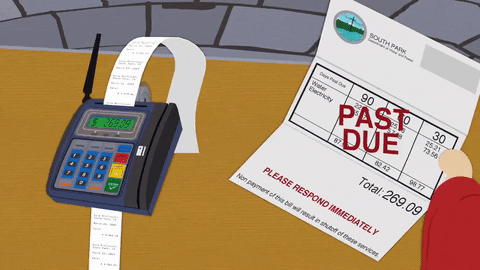
The Impact of Filing Bankruptcy for Credit Card Debt
How Long Bankruptcy Affects Your Credit
The impact of bankruptcy on your credit is substantial and lasts for years. The exact length of time a bankruptcy stays on your credit report depends on the type of bankruptcy you file.
- Chapter 7 Bankruptcy: This type of bankruptcy stays on your credit report for 10 years from the date it’s filed. It usually results in a significant drop in your credit score.
- Chapter 13 Bankruptcy: A Chapter 13 bankruptcy stays on your credit report for 7 years. Unlike Chapter 7, you’re repaying your debts rather than erasing them, which credit scoring models often view in a more positive light.
Keep in mind that these are the lengths of time the bankruptcy filing stays on your credit report, separate from each individual account status. Delinquent accounts associated with bankruptcy will also stay on your credit report for seven years. Furthermore, once you’ve filed for bankruptcy, it may be challenging to receive credit due to potential lenders’ reluctance.
However, the impact of bankruptcy on your credit score lessens over time, and you can start rebuilding your credit immediately after a bankruptcy discharge.
How Does It Affect the Chances of Future Credit Approvals?
Bankruptcy can significantly impact your chances of future credit approvals. It indicates to potential creditors that you have struggled with debt repayment in the past, which might make them apprehensive.
- Immediately after Bankruptcy: Approval for credit immediately after bankruptcy will be challenging due to the poor credit score and the fresh bankruptcy marking. Credit issued during this period is likely to come with high interest rates, stringent terms, or require a co-signer.
- Mid-term impact: As time passes and your credit history starts to age, you might find your chances of credit approval start to improve. However, the interest rates might still be on the higher side, and borrowing limits could be restrictive.
- Long-term Impact: Over time, if you have followed sound credit habits, lenders might eventually overlook the bankruptcy, acknowledging your improved and responsible credit behavior. By this time, it is possible to obtain credit at favorable rates and terms.
Remember, while the road to recovery can be tough, it is certainly not impossible. One key factor to enhance your credibility post-bankruptcy is to diligently work towards rebuilding your credit profile.
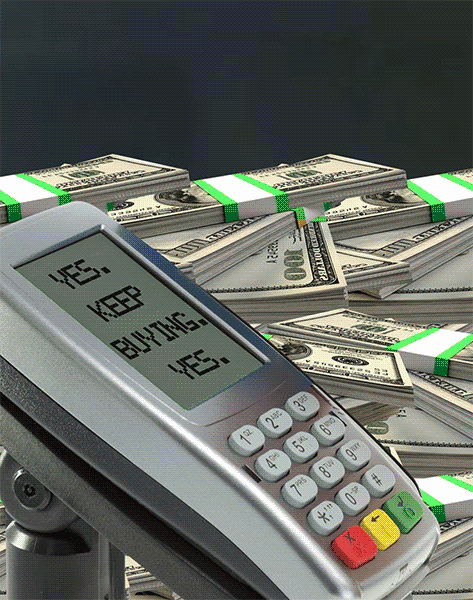
The Aftermath: Life Post-Bankruptcy Declaration
Managing Finances After Declaring Bankruptcy on Credit Cards
Rebuilding financial stability post-bankruptcy is a critical aspect of life after declaring bankruptcy on credit cards. Here are some steps you can follow to manage your finances effectively:
- Create and Stick to a Budget: A well-thought-out budget is vital to avert overspending and ensure you’re saving towards future financial goals. This involves tracking your income and expenses and making conscious decisions about where your money goes.
- Save for Emergencies: An emergency fund acts as a safety net when faced with unforeseen expenses. Aim to save up enough money to cover 3-6 months’ worth of basic living expenses.
- Avoid Accumulating New Debt: Strive to pay full balances on credit cards monthly or avoid using them altogether if you’re prone to overspending.
- Consider Professional Help: Collaborating with a financial advisor can be a prudent decision for effective management of personal finances and future planning.
By adopting these strategies, you can take charge of your financial health, stave off any future debt issues, and set yourself on the path to financial stability.

Rebuilding Your Credit Post-Bankruptcy
Establishing a good credit history post-bankruptcy can be a challenging but achievable task. Here are strategies you can embrace to rebuild your credit:
- Review Your Credit Report: Regularly monitor your credit report for inaccuracies that may damage your credit score. If you find any, dispute it with the credit agencies.
- Secured Credit Cards: A secured credit card is often a feasible option for people recovering from bankruptcy. These cards require a cash deposit that serves as your credit line. Regular, on-time payments will reflect positively on your credit report.
- Punctual Bill Payments: Even small bills like utility payments matter. Paying all your bills on time every time can aid in rebuilding your credit history.
- Credit-builder loan: Some banks and credit unions offer loans designed to help people with bad credit rebuild their credit profiles. The lender deposits the loan funds into a secured savings account that the borrower cannot access until the loan has been fully repaid.
- Avoiding Debt: Perhaps the most important aspect is to avoid falling into the same debt trap. Ensure you’re living within your means and avoiding unnecessary expenses that can push you back into debt.
Remember, building good credit post-bankruptcy takes time and patience, but by taking deliberate steps, you can re-establish good credit and lay the groundwork for a secure financial future.
Alternatives to Bankruptcy for Credit Card Debt
Debt Consolidation: An Alternative Method
Indeed, bankruptcy can feel like a drastic step and it’s not always the best solution for managing credit card debt. There are alternatives like debt consolidation that you can explore.
Debt consolidation involves taking out a new loan to pay off other debts, usually from credit cards. This method is effective when having multiple debts with various interest rates makes managing payments complicated or when you can secure a lower interest rate on the consolidation loan than the existing debts.
Debt consolidation loans are often positioned as personal loans with low fixed interest rates and terms stretching between one and seven years. They can provide a more cost-effective way to repay high-interest credit card balances. These loans might cause an initial drop in your credit score due to the hard inquiry required to apply. However, with consistent on-time payments, this approach can improve your credit score over time.
Remember, while consolidating debt can lighten the immediate financial burden, it does not eradicate the debt. You’re still obligated to make payments on the new loan. Hence, consider evaluating your repayment capabilities before opting for a consolidation loan.
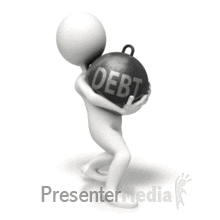
Negotiating Medical Debts: Another Feasible Option
While medical debt is different from credit card debt, it’s worth mentioning that if medical expenses contribute significantly to your overall debt, it may be possible to negotiate a payment plan with your medical provider to lighten your burden.
You can call the billing office of your healthcare provider, explain your financial situation, and ask for a lowered monthly payment or a relief plan. Many hospitals and health systems offer such discounts and plans for financial hardship.
Such negotiation will not impact your credit score negatively as long as you make payments on time and pay the amount of debt agreed upon. If the monthly payments are significantly lower and easier to manage, there’s less chance of missing a payment, thereby indirectly having a positive impact on your credit score.
In the event of successful negotiation, ensure all agreements are formally documented. Be aware that in some cases, debt forgiveness can potentially be taxable. To avoid being misled or worsening your situation, resolve any ambiguities before entering a negotiation.
Exploring such alternatives before filing for bankruptcy can not only help manage your debt but also prevent the serious and long-lasting impact of bankruptcy on your credit history and financial future.

FAQs
Can I File Bankruptcy Only On My Credit Card Debt?
No, when you file for bankruptcy, you are obliged to list all of your debts, not just your credit card debts. The bankruptcy court needs to have a thorough understanding of your complete financial situation, which includes all liabilities you have, in order to properly administer your estate and ensure fair treatment to all your creditors.
Remember, bankruptcy is a serious legal process intended for those truly unable to repay their debts, not a means for selective debt elimination. If you’re contemplating bankruptcy as a possible solution to your debt troubles, it’s recommended to seek advice from a trustworthy bankruptcy attorney or financial advisor who can guide you to the best solution given your unique financial circumstances.
Will Filing for Bankruptcy Affect My Job?
While filing for bankruptcy does carry consequences, it should not generally affect your existing job. Under the U.S. Bankruptcy Code, an employer is not legally permitted to terminate your employment or discriminate against you solely because you have filed for bankruptcy.
However, for certain professions, especially those in the financial industry or positions that require handling money, there might be an indirect impact. Companies can legally request credit checks for potential employees, so having a bankruptcy on your record could influence their hiring decision.
In all instances, it’s crucial to understand that while employers may look upon bankruptcy unfavorably, many will also take into account the circumstances that caused it and the steps taken to rectify it thereafter. Working towards financial responsibility post-bankruptcy can mitigate some of the negative effects.
Can Credit Card Companies Sue Me After I file for Bankruptcy?
Once you have filed for bankruptcy, an automatic stay provision goes into effect, which legally prevents creditors, including credit card companies, from initiating or continuing any collection efforts, including lawsuits, garnishments, or even contacting you about the debt. This stay remains in effect until your bankruptcy case is closed or discharged, or until the creditor obtains a court order lifting the automatic stay.
If a credit card company does file a lawsuit, it’s usually within the 60-day period following the creditors’ meeting in an attempt to prevent the bankruptcy court from discharging the debt. This is generally only if they believe they can prove the debt was incurred fraudulently.
However, once the bankruptcy discharge is granted, it officially voids the debtor’s legal obligation to pay off any discharged debts, including those from credit cards. A creditor who tries to collect a discharged debt is violating the court order and can be held in contempt of court and subjected to penalties.
In conclusion, while creditors do have the right to challenge your bankruptcy discharge, it is rare and unlikely that they will sue you post-discharge unless they suspect fraudulent activity. Engaging a bankruptcy attorney can help navigate these complexities and ensure you’re protected from legal harassment by creditors.
- How to File for Bankruptcy on Credit Cards: The Complete Guide to Bankruptcy and Credit Card Debt - October 25, 2023
- What is loan principal and how does it work? - September 24, 2022
- Building Your Business: Separating Your Personal and Business Finances - March 2, 2022

